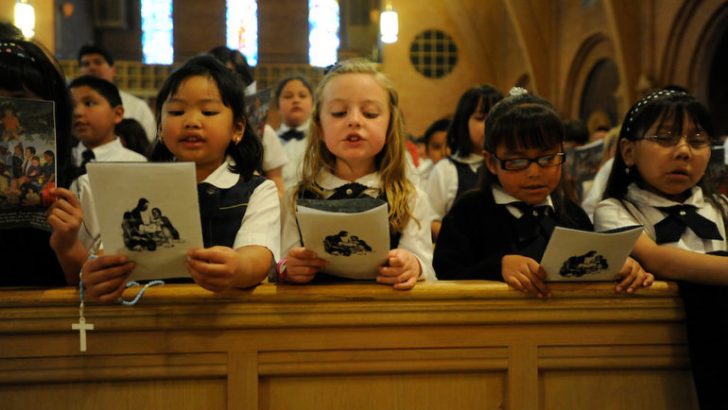Before Covid-19, about a third of Irish people reported that they attended a religious ceremony at least once a week. Some 100,000 people went to Mass every single day before the pandemic restrictions were imposed.
When we entered level three, all public worship was banned – the only country in Europe to do so (Wales has since imposed such a ban but only for two weeks). Now that we’re at level five with a hoped-for return to level three in early December the prospects for midnight Mass this year look particularly bleak.
Not since penal times did Irish Catholics face the prospect of being unable to celebrate the birth of Christ in their churches.
Many priests and parishioners I have spoken to are bewildered and increasingly angry. They know that thousands of volunteers moved heaven and earth to ensure that there could be a safe return to public Masses.
Frustration
The sense of frustration increases when we look at believers in countries all across Europe – many with much higher rates of transmission than here – attending religious ceremonies in small numbers while wearing masks and keeping their distance and wonder why the ban here.
In the North, First Minister Arlene Foster has insisted that public worship should continue. “There is no evidence that there is transmission of the virus in places of worship,” she said told BBC Radio Ulster. “Freedom of worship is a fundamental right that we all want to protect…in terms of going to church, people are very responsible: wearing masks, social distancing, abiding by all the regulations – that is why we are not interfering with basic right of freedom of worship,” she said.
People say, but surely Mass is on the television…but it is a very poor substitute for meeting in person”
Neither the National Public Health Emergency Team (NPHET) nor the Government have indicated that places of worship are a problem in the Republic. Neither have they indicated what (if any) epidemiological evidence they have that has led to the restriction of worship here that experts all across Europe have felt unnecessary.
People say, but surely Mass is on the television? This is true, and welcome solace for many people. But, much like a Zoom call can help keep us in contact with our families – it is a very poor substitute for meeting in person.
Church leaders are due to meet Taoiseach Micheál Martin to discuss their concerns. They have been much more robust than at the time of the first lockdown and this is because they saw the effects of that on their communities. When the meeting goes ahead, they need to bring the concerns of ordinary priests and parishioners to the Government. It’s a disenchantment felt by many religious people who, as a demographic, are fairly compliant and law-abiding people. The continued ban on public worship, without any evidence being presented to support such a ban, risks undermining the confidence of such people in the broader restrictions being rolled out to try to slow the spread of the virus.
The Republic is an outlier and along with Wales remains the only part of Europe where religious ceremonies are banned. Practice is not what it was, but faith makes a huge impact on the lives of so many people in this country. The Government should do the decent thing and let people of faith do as they were doing – gathering safely in their holy places to worship their God together.
To join Friends of The Irish Catholic and support Catholic journalism, please fill in the form on page 11 of this week’s print issue. You can also phone 01 6874094 for more information or to make a contribution.


 Michael Kelly
Michael Kelly
